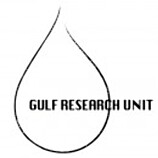
Archive: Gulf Research Blog
Blog articles from 2009 to 2012. The Gulf Research Unit is research programme based at the University of Oslo.
Does oil really hinder democracy?
Denne artikkelen er over ti år gammel og kan inneholde utdatert informasjon.
By: Ingrid Krüger
A first glance at the world shows us that highly democratic countries typically are richer than undemocratic countries. There are however some highly undemocratic countries that are extremely rich, namely countries that are rich in natural resources. Does this support the hypothesis that the natural resources hinder democracy? If so, this would be a clear example of the so-called ‘natural resource curse’ at work – the favorable endowment is a curse rather than a blessing, or as OPEC’s founder Pérez Alfonzo said it, oil ‘is the Devil’s excrement’.
Ross poses the question of whether oil hinders democracy – and he finds that it does. Ross writes that ‘several studies show that when incomes rise, governments tend to become more democratic’, but goes on to write that some scholars imply there is an exception to this rule, namely ‘if rising income can be traced to a country’s oil wealth (…), this democratizing effect will shrink or disappear’.[1] Is it really the case, however, that as long as the revenues of the state are non-oil revenues, democratization will follow, whereas if the revenues are oil revenues, democratization is hindered? Couldn’t it rather be the case that non-oil revenues are growing because democratization is already taking place, since a larger part of the economy’s human resources is utilized as the country becomes more democratic, and that the non-oil revenues are continuing to grow as the country follows the path of democratization? In that case, it is not the non-oil revenues that cause democratization, but rather democratization that cause non-oil revenues to grow. When non-oil revenues do not cause democratization, it is not so surprising that oil revenues do not cause democratization either, but does oil hinder democracy? It seems more plausible that the effect that oil revenues will have on a country depends on the regime type in this country at the outset: was the country democratic or undemocratic before oil revenues started to flow?
Oil revenues give a state the opportunity to grow and to intervene more than it used to. If it is an undemocratic state that receives these oil revenues, it is likely to yield a different outcome than if the state was democratic to begin with. If state intervention was through ad hoc spending and populism before the state was so favorably endowed, one might expect more ad hoc spending and more populism with the natural resource endowment. If the state on the other hand intervened through investing in infrastructure, educating children and building hospitals before oil was discovered, one might rather expect to see more of such intervention as the budget is allowed to grow.
As Mehlum, Moene, and Torvik pointed out in their blog post on the Norwegian economy last week, the oil revenues opened up for expanded production of public sector services in Norway, and productive societal arrangements and oil production has gone hand in hand. In the oil rich Gulf Region, on the other hand, we find states that perform poorly in democratic terms. Iran had democratic deficits before discovering oil and they have also had democratic deficits with oil revenues. If undemocratic states receive oil, how fast do we expect their regimes to turn into more democratic ones? Was it the lack of oil revenues that prevented democracy to begin with?
[1] Ross, Michael (2001). ”Does Oil Hinder Democracy?” World Politics, Vol.53 (3), pp.325 – 361.






